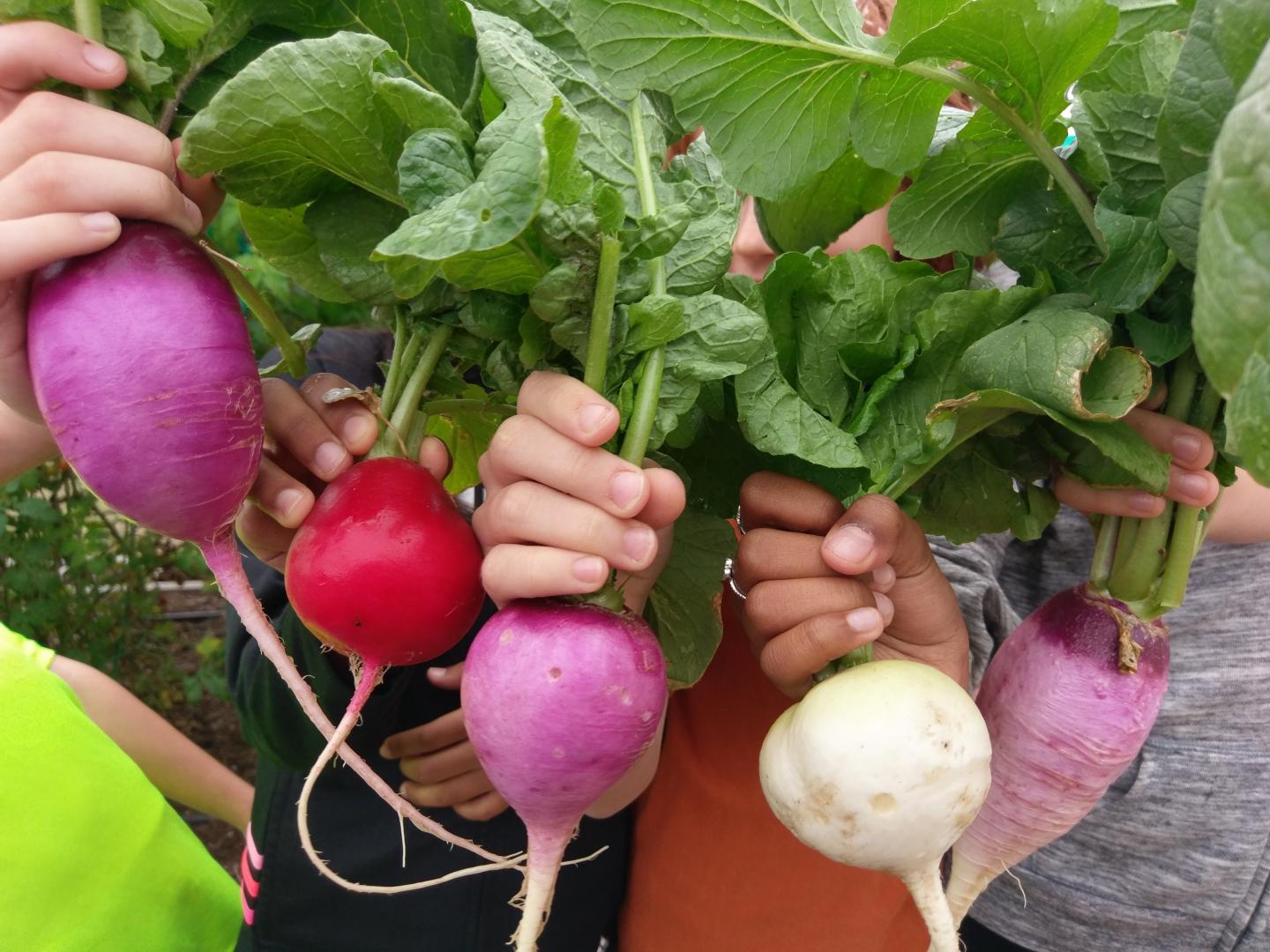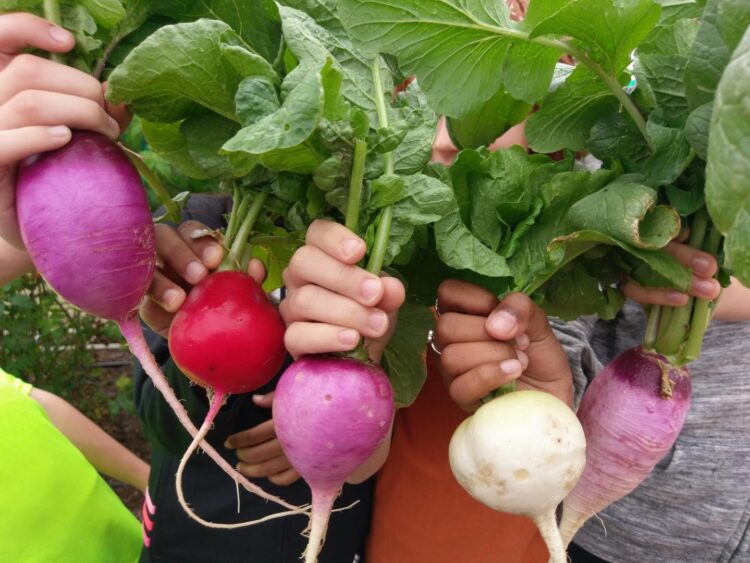
Credit: The University of Texas at Austin
Getting children to eat their vegetables can seem like an insurmountable task, but nutrition researchers at The University of Texas at Austin have found one way: school gardens and lessons on using what’s grown in them.
Researchers worked with 16 elementary schools across Central Texas to install vegetable gardens and teach classes to students and parents about nutrition and cooking. In a study recently published in the International Journal of Behavioral Nutrition and Physical Activity, the team describes specifically targeting schools with a high percentage of students on the free and reduced-price lunch program to understand how nutrition programs affect low-income groups. Each school was studied for one academic year.
The study found that students who participated in the gardening, nutrition and cooking classes ate, on average, a half serving more vegetables per day than they did before the program.
“A lot of the families in these schools live with food insecurity. They live in food deserts and face a higher risk of childhood obesity and related health issues,” said Jaimie Davis, associate professor of nutritional sciences at UT Austin and the lead author of the paper. “Teaching kids where their food comes from, how to grow it, how to prepare it — that’s key to changing eating behaviors over the long term.”
In addition to tracking what the children ate, the study looked at weight, body mass index and blood pressure. During the nine months of the study, there were no statistically significant changes in those measures of health. The study involved more than 3,000 students in the third through fifth grades.
Although a half serving increase in vegetable consumption per day may seem like a small change, it’s extremely encouraging to Davis and her colleagues.
“Behavior changes can be difficult to achieve, especially long term,” Davis said. “Changes to health parameters like blood pressure may take longer to manifest. Getting children to eat more vegetables can potentially set them up for long-term success.”
Previous studies have shown that increased fruit and vegetable consumption can promote health and lower the risk of developing cardiovascular disease, type 2 diabetes and some cancers. More fruits and vegetables may play a role in reduced obesity in adults, but the effects have not been well studied in children.
“We have been able to introduce children to a wide variety of vegetables that they’ve never had access to,” Davis said. “Parents I talk with ask, ‘How did you get my kid to eat kale?’ But when they grow the kale from seed and learn how to prepare it in olive oil and bake it into kale chips, they love it.”
###
Adriana Peacuterez, Brian Fischer, Deanna M. Hoelscher and Alexandra E. van den Berg of the Michael & Susan Dell Center for Healthy Living at the UT Health Science Center at Houston; Fiona M. Asigbee, Matthew J. Landry, Sarvenaz Vandyousefi, Reem Ghaddar, Amy Hoover, Matthew Jeans and Katie Nikah of The University of Texas at Austin; Stephen J. Pont of the Department of Pediatrics at Dell Medical School at The University of Texas at Austin; and Daphne Richards of the Texas A&M AgriLife Extension Service, Travis County also contributed to the research.
The research was funded by the National Institutes of Health. Whole Kids Foundation, Home Depot and Sprouts Healthy Communities Foundation gave funding for garden construction and enhancements.
Media Contact
Esther Robards-Forbes
[email protected]
Related Journal Article
http://dx.





